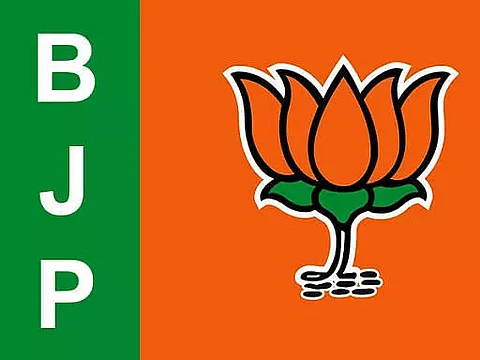
- Home
- Live Blog
- Breaking News
- Top Headlines
- Cities
- NE News
- Sentinel Media
- Sports
- Education
- Jobs

The national president of Bharatiya Janata Party (BJP) J.P. Nadda's faux pas on granting Scheduled Tribe (ST) status to the six communities in Assam has put the ruling party on a sticky wicket. The BJP chief, while sounding the poll bugle for the Assembly polls in Assam erroneously claimed that the six communities - Morans, Mataks, Koch-Rajbongshis, Tai-Ahoms, Chutiya and Adivasis/Tea Tribes -- have been granted the ST status. The hard reality is that the Group of Ministers constituted by the Assam Government to go into the issue has missed several deadlines and is yet to submit its recommendations to the Central government on the rights and privileges of the communities to be included in the expanded list. The Constitution (Scheduled Tribes) Order (Amendment) Bill-2019 tabled by the Central government in the Rajya Sabha seeking to include the six communities in the ST list is yet to be passed by the Parliament. The Central government also promised on the floors of the Parliament that full safeguards will be provided to protect the interests, rights, and privileges of the existing ST communities in the State. The Assam government has been walking a tightrope as various tribal bodies have been cautioning that expansion of the list should not affect the rights and entitlements enjoyed by the existing ST communities. The Assam Assembly in its recent session unanimously passed the amendment Bills paving the way for the State government to constitute the interim Executive Councils for the three new autonomous councils for the Morans, the Mataks and the Koch-Rajbongshis before the Assembly polls. The State government hopes that constitution of these interim Councils will help it buy time for addressing the complexities of deciding the rights and privileges of the new ST Communities. The State government rushed with the amendment Bills as constitution of the elected Executive Councils ahead of the Assembly polls will not be possible.
The power-sharing governance model of creating autonomous councils to address the ethnic identity issue has its own shortcomings of institutional overlapping. Unless the issue of institutional overlap is addressed, mere creation of new autonomous councils is not going to fulfil the identity aspirations of the communities. The primary apprehension of the existing ST communities is that expansion of the list would lead to sharing of political rights in the Bodoland Territorial Council (BTC)under the Sixth Schedule and the six Autonomous Councils constituted under Acts passed by the State Assembly and the ST seats in Assembly and Parliament. As the reservation of seats in these constituencies is for existing ST communities, the inclusion of the new communities in the list, unless otherwise specified, will also allow the six communities to contest in the Council seats reserved for STs. In the Bodoland Territorial Council, for instance, the Koch-Rajbonghsis and Adivasi communities will also be able to contests in the seats reserved for the STs, if the list is expanded to include them along with four other communities. The districts under the Karbi Anglong Autnomous Conuncil and the Dima Hasao Autonomous Council are excluded from the purview of the Bill and therefore for the existing STs in the hill district the Bill did not have any direct impact. The GoM was constituted to determine the quantum of reservationfor six communities, suggest revised quantum of reservation of OBC after the creation of a new ST category in Assam; suggest measures ensuring full safeguard to protect the interests, rights, and privileges of the existing STs. The new Bodo Accord promises to increase the seats in BTC to 60 from current strength of 40; and the State government hopes that increase in the number of seats will allow the elbow room for expansion of the ST list without affecting the interest of the Bodos. In that case, the creation of a new ST category may be an answer to prevent offsetting the political equilibrium in BTC. Creation of a new ST category is easier said than done as it would then give rise to the question of Constitutional validity of another category when the State already has two categories – ST (Plains) and ST (Hills). The BJP national chief's statement, which is only reflective of ill-briefing by the party's State unit, has pushed the issue to the centrestage of electioneering for the Assembly election which is less than three months away. Apart from continuing the efforts to hammer out solutions to the pending issues of ethnic identities, the government should focus more on inclusive development of all the communities. Granting the ST status is a sensitive issue; besides a solution acceptable to all the stakeholders will remain elusive if the political parties fail to look beyond the electoral politics. Instead of trying to score political brownie points, the political parties should explore ways to find a pragmatic solution to the vexed issue. A delaying tactic would be only counterproductive.